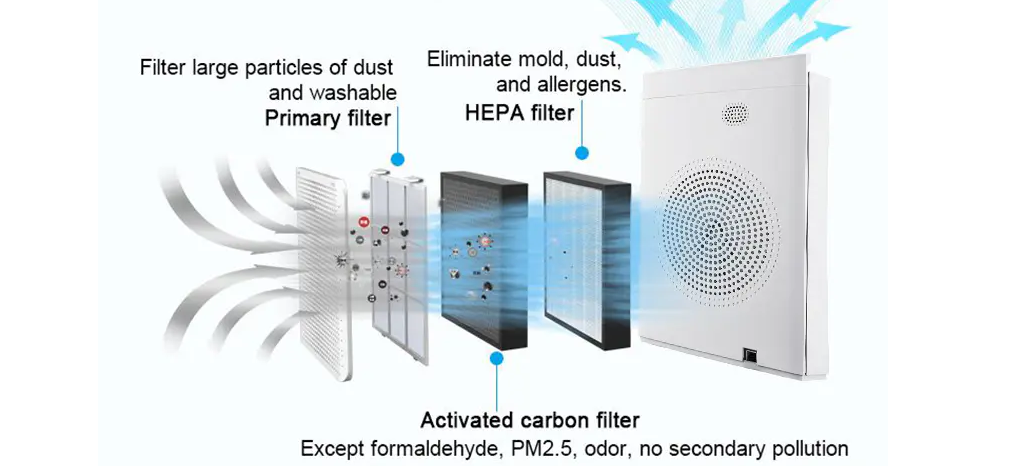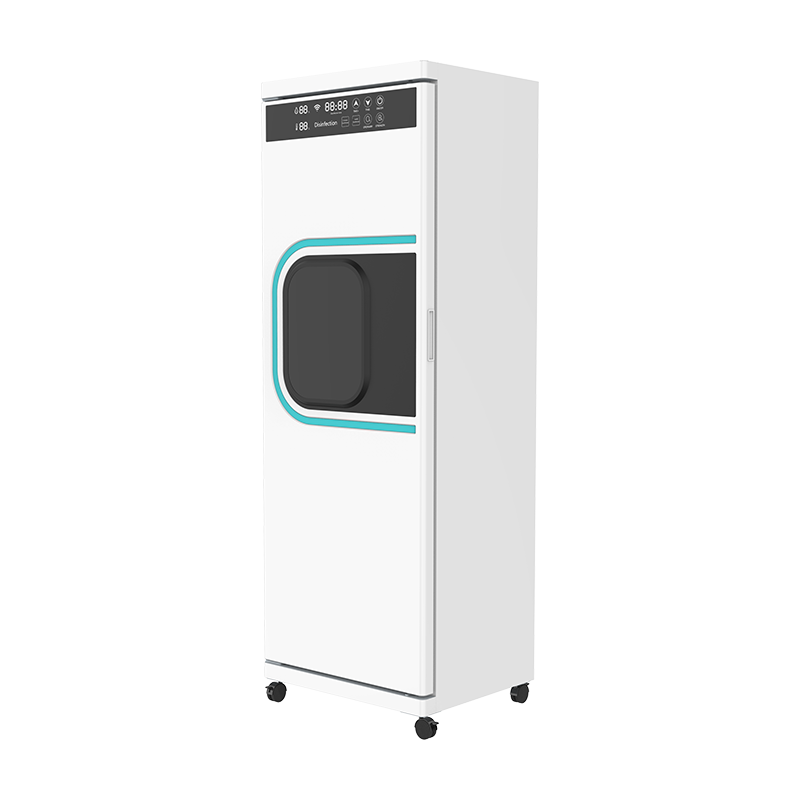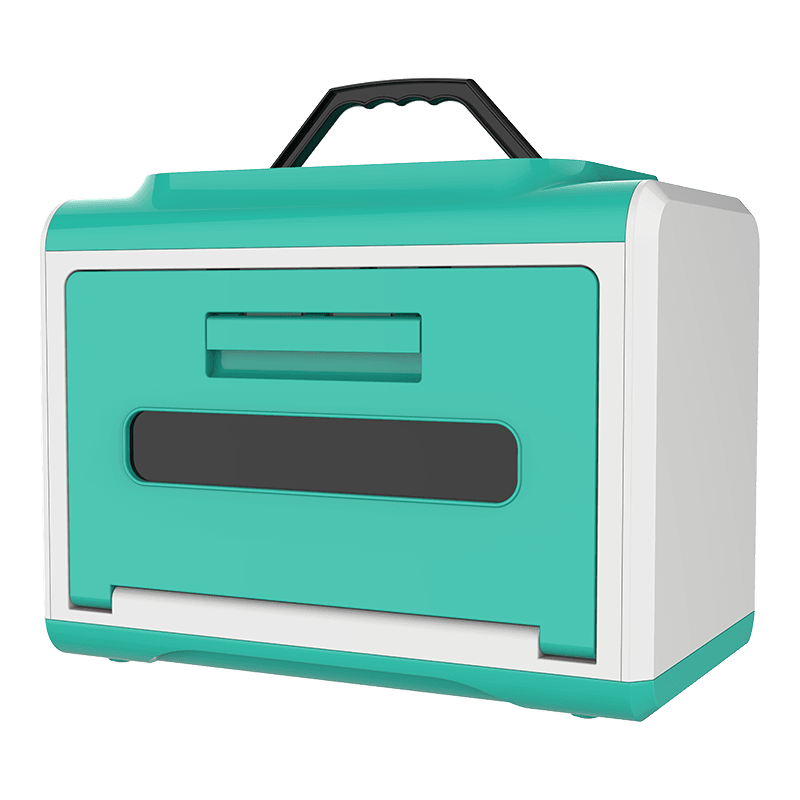With increasingly severe air pollution, more and more families are paying attention to improving air quality. The elderly and children have weaker immune systems and their respiratory systems are not yet fully developed, making them more susceptible to adverse health effects from pollutants, bacteria, viruses, and other harmful substances in the air. Therefore, placing a high-efficiency air purifier in the home, especially a medical-grade air purifier, has become an indispensable health safeguard for modern families.
Why do the elderly and children need air purifiers more?
1. Weaker Immune Systems, Susceptible to Air Pollution
As the elderly age, their immune systems gradually decline, leading to decreased resistance. Many elderly people also suffer from chronic diseases such as heart disease, asthma, and chronic obstructive pulmonary disease (COPD), which make them more sensitive to harmful substances in the air. For example, PM2.5 and airborne pollutants such as bacteria and viruses can exacerbate these conditions, leading to breathing difficulties, cardiovascular events, or allergic reactions.
Children's immune systems are not yet fully developed, and their respiratory systems are more vulnerable. Young children are particularly susceptible to the harm of air pollution because their breathing rate is higher and their airways are shorter, making it easier for harmful substances to enter their lungs. 1. Airborne pollutants (such as smoke, dust, and pollen) can cause health problems in children, including coughs, asthma, and allergic rhinitis, and in severe cases, can even affect their development.
2. Allergic Reactions and Respiratory Diseases
For elderly people or children with allergies, even tiny allergens in the air can trigger severe allergic reactions. Common allergens such as pollen, dust mites, and mold can easily proliferate in the home environment, especially in high humidity or poorly ventilated conditions. Air purifiers can effectively filter these allergens, creating a healthier living environment for the elderly and children.
3. Airborne Viruses and Bacteria
Airborne viruses and bacteria spread rapidly, especially during seasonal changes when viruses such as influenza and the common cold can easily spread in homes. Due to differences in their immune systems, the elderly and children may experience more severe symptoms or even complications after contracting these viruses. Air purifiers, especially high-efficiency medical-grade air purifiers with UV sterilization or negative ion functions, can effectively kill bacteria and viruses in the air, reducing the risk of cross-infection.

Why Choose a Medical air purifier?
There are many types of air purifiers on the market, ranging in price, but for families with elderly members or children, choosing a medical-grade air purifier is crucial. Medical-grade air purifiers typically have the following advantages:
1. HEPA High-Efficiency Filtration System
Medical-grade air purifiers are usually equipped with HEPA (High-Efficiency Particulate Air) filters, which can filter out more than 99.97% of particles larger than 0.3 microns in the air. HEPA filters effectively remove harmful substances such as PM2.5, dust, pollen, bacteria, and mold spores, providing cleaner air for family members.
2. UV Sterilization Function
Many medical air purifiers are equipped with ultraviolet (UV) sterilization, which can effectively kill bacteria, viruses, and microorganisms in the air, reducing the risk of infection. This plays an important protective role for the elderly and children in the family, especially during flu season.
3. Multiple Purification Technologies
In addition to HEPA and UV sterilization functions, some high-end medical air purifiers are also equipped with activated carbon filters, negative ion generators, electrostatic filters, and other purification technologies. These technologies deeply clean the air, removing odors, formaldehyde, and other harmful gases, and further freshen the air through negative ion purification, ensuring a healthier and more comfortable home environment.
4. Quiet Design, 24/7 Operation
Medical-grade air purifiers are typically designed for low-noise operation, so even with 24-hour use, they won't disturb family members. This is especially important for children's sleeping environments, ensuring they can rest peacefully.
How to Choose the Right Air Purifier?
1. Consider the Applicable Area
When choosing an air purifier, select a model appropriate for your home's size. Generally, the instruction manual will indicate the applicable area; users can choose based on their room size.
2. Check Filter Replacement Frequency
Air purifier filters need regular replacement; otherwise, the purification effect will be significantly reduced. When choosing, pay attention to the filter's lifespan and replacement cycle to ensure good air quality is maintained even with long-term use.
3. Consider Both Functionality and Budget
Besides filtration efficiency, users should also consider the air purifier's additional functions (such as UV disinfection and negative ion purification) and their budget. While high-end medical-grade air purifiers are more expensive, their superior purification effects and additional functions provide more comprehensive protection for the family.
Ensuring air quality is especially important in homes with elderly people or children. Choosing a high-efficiency medical-grade air purifier can effectively improve home air quality, reduce the harm of pollutants, allergens, bacteria, and viruses, and protect the health of every family member. Through the scientific selection and proper use of air purifiers, the respiratory health of family members will be better protected.

 EN
EN
 English
English 中文简体
中文简体
.png)









